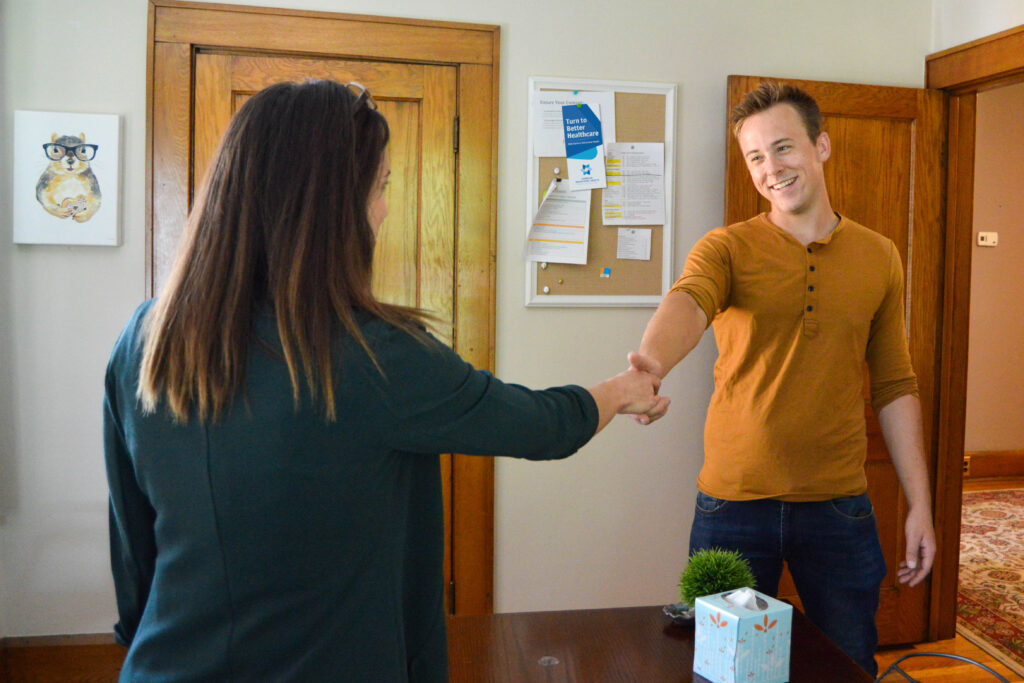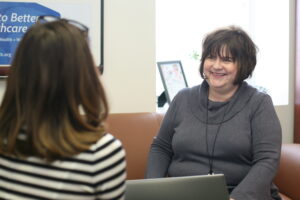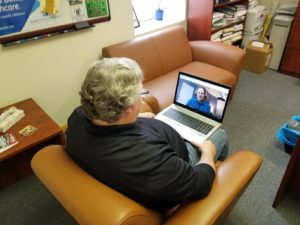What is a Case Manager?
At Barbour Community Health Association, we not only prioritize a patient’s physical health, but also their mental wellness.

Mental health is so, so important to a person’s daily life – whether it’s maintaining relationships, creating healthy family and work life balance, improving emotional health or overall quality of life.
That’s why we ensure we have the best behavioral health team that offers care and compassion to each individual who walks through the door. Our team also includes expert therapists who are specialized in various behavioral health treatment areas, including: anxiety, depression, mood disorders, substance abuse and many more mental health needs.
Our team also includes case managers who maintain a rapport and working relationship with each patient who may identify with a mental health concern.
Let’s learn a bit more about case managers and their important role in the behavioral health field.
Why are case managers needed?
Case managers often assist patients in connecting them with tools and resources that can benefit and improve their quality of life. They assist in the very important process of managing care to ensure that the patients’ individual needs are being met in the best way possible. They work directly with each patient from the beginning of behavioral health treatment services until completion.
What are our case managers responsibilities?
Case managers help in various ways, including:
– Providing patients with resources, which may include linkage and referral to outside community, treatment and support agencies.
– Coordinating patient appointments.
– Providing compassion and support to all patients via telephone or in person.
– Assisting with coordination of patient health insurance benefits.
– Working with the patient’s licensed health care provider to ensure behavioral health treatment efficiency and service delivery.
What is the difference between a case manager and a therapist?
Barbour Behavioral Health case managers are the initial point of patient contact, and provide support and information regarding available treatment options. Often case managers are referred to as the safety net that helps to catch patients who are in need. They are appointed to a patient to help assist in a smooth recovery throughout treatment with their licensed provider. Case managers communicate with patients in between provider appointments as needed for additional support.
A therapist works with the patient in identifying areas of concern, symptoms, diagnosis and strengths in order to develop personalized treatment goals which can be achieved within the therapeutic process. A therapist helps the patient in treating the underlying cause of symptoms for increased quality of life through various evidenced-based clinical practices, or interventions.
Both aim to ensure that patients are working toward achieving the best version of themselves.
What is the education of our case managers?
Barbour Behavioral Health case managers have a minimum 4-year undergraduate college degree in a human services related field.
At BCHA, we value our case managers, who are dedicated to our patients and their wellbeing.
For more information on behavioral health services, please call 304-823-4000.
GETTING TO KNOW KAITLIN JONES, PA-C: OUR NEWEST QUICK CARE PROVIDER
GETTING TO KNOW KAITLIN JONES, PA-C: OUR NEWEST QUICK CARE PROVIDER Barbour Community Health Association is always excited to welcome new team members who
Keep Your K-12 Child On Track with Annual Well-Child Visits
Keep Your K-12 Child On Track with Annual Well-Child Visits Children grow and change rapidly as they advance from toddlers to teens to young
Overcoming the Winter Blues: The Guide to Seasonal Depression Care
Overcoming the Winter Blues: The Guide to Seasonal Depression Care As the days grow shorter and colder, many people experience more than just the

 I don’t know where to start.
I don’t know where to start.




 I’ve been in this field over 30 years and I’ve come to love working with kids and younger patients. With BCHA I have room for growth and opportunity. I’m also thrilled to be working with such an experienced team of talented counselors and therapists.
I’ve been in this field over 30 years and I’ve come to love working with kids and younger patients. With BCHA I have room for growth and opportunity. I’m also thrilled to be working with such an experienced team of talented counselors and therapists.